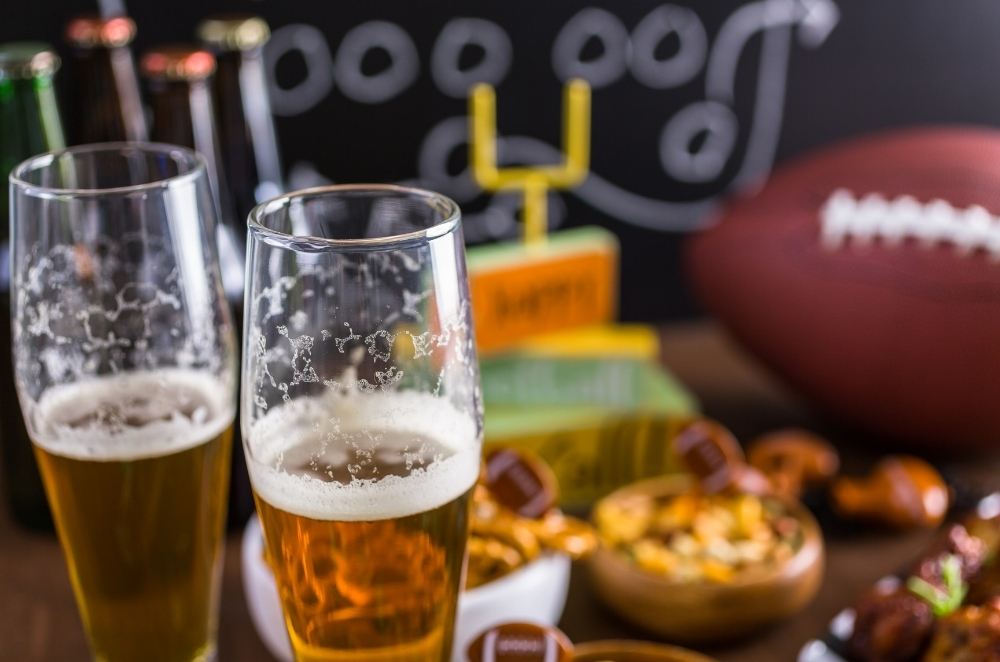
While drinking and driving is a well-known offense, it is vital to remember how important it is to never get behind the wheel of a vehicle after consuming alcohol, especially as football season arrives. Many people enjoy alcoholic drinks while attending football games, watching games at bars and the homes of friends, or tailgating outside a stadium before a game.
A study from the University of Minnesota found that one in every 12 attendees at an NFL game will leave the stadium legally drunk. To put that into perspective, the Carolina Panthers’ stadium holds 75,412 people. That means at full capacity, there could be 6,285 drunk drivers getting on the road, ready to cause crashes after a game!
In addition, the study found that people who tailgate before a game are 14x more likely to leave a game drunk than other fans.
How Alcohol Affects Drivers
The effects of alcohol can negatively affect nearly every aspect of driving. And what makes this so dangerous is that it also applies to “buzzed” driving. While it’s not legally “drunk driving” unless your blood alcohol content (BAC) is 0.08% or higher, any amount of alcohol, even just one drink, can affect your driving ability. You may become impaired even before you feel buzzed.
- After one drink (or a BAC of 0.02%), drivers can’t multitask or track moving objects (such as other vehicles and pedestrians).
- After two drinks (or a BAC of 0.05%), a driver loses coordination and has slowed reaction times.
- After three to four drinks (or a BAC of 0.08%), a driver is legally intoxicated. They won’t be able to tell how fast they are driving and will easily lose concentration when performing basic driving tasks such as being able to slow down, stop, or turn.
- After six drinks (or a BAC of 0.10%), a driver won’t be able to steer or brake correctly.
- After more than six drinks (or a BAC of 0.15%), a driver may not process anything they see or hear around them (this is how drunk drivers get into crashes without realizing they’ve hit someone).
Even more alarming is that a lot of drivers, unfortunately, don’t believe it. One study found that nearly a third of people aged 18-34 believe that some people are “good at drunk driving.”
If you have a friend or family member who believes they drive better when drunk, make sure to sit down and talk with them about the danger they are putting themselves in and the serious consequences they could face if they injure or even kill someone because they chose to drive drunk.
Ways to Stay Safe After Sporting Events
If you are planning to attend a football game this fall where alcohol will be served, it’s important to do everything you can to protect yourself and others from drunk driving accidents.
Following these tips could save a life:
- Do not drive yourself. Have a designated driver or a sober way home, such as an Uber or Lyft. Even if you drove yourself, don’t be afraid to find alternate transportation home and return for your car when you are sober.
- Watch your alcohol consumption, especially when you feel the alcohol beginning to affect you. Drink one glass of water in-between every alcoholic beverage.
- Leave the game early. This may help you avoid many of the drunk drivers leaving the stadium.
- Always wear a seatbelt. This could save you from serious injury in a collision.
- If you see what you suspect is a drunk driver (weaving in the road, driving outside a designated lane, turning too widely, tailgating, driving far below the speed limit, or braking erratically), slow down, pull over, and let the driver pass you. Do not attempt to stop them or follow them.
- Contact the police after seeing a drunk driver on the road and give them a description of the vehicle and where you saw it.
We Help Victims of Drunk Driving Accidents
There is never an excuse for drunk driving. If you or someone you love was seriously injured or killed in a drunk driving accident, whether leaving a football game or not, you deserve compensation for your medical bills, pain, and suffering.
We want to help you hold drunk drivers accountable when they harm others, and make sure you receive the compensation you need to get your life back together after accidents that weren’t your fault. Contact our firm today for a free consultation on your claim.






































